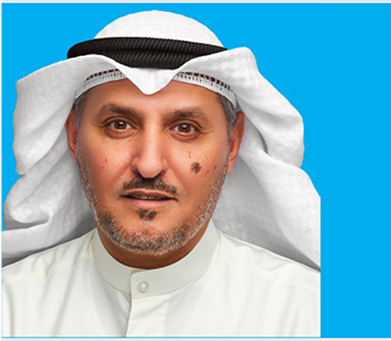
"You cannot tackle hunger, disease and poverty unless you can also provide people with a healthy ecosystem in which their economies can grow." - Gro Harlem Brundtland
doubt the health sector in any country is considered the most important backbone of administrative development. In Kuwait, the government is exerting much appreciated efforts by all to show the health structure at its best, and like any job, there should be objective observations and valuable suggestions in general efforts in managing and directing the health sector in the country. This column is only for these efforts that are to be evaluated, observed and be objective.
When we speak about the health sector, we mean health ministry, and particularly the public health sector, not the private one, which is out of the focus of the column. Everybody knows that the two sides of the health sector are the patient and doctor. So all the abilities and efforts of the health sector are destined for those two sides. They are the essence of the health sector's development.
Any health facility built in the world must be at the service of the patient and doctor, and because of this, it is important to focus our attention where the defect, if it exists, lies. Many are those who know that the largest financial budgets are pumped into the health sector, so we are talking about billions of dinars, not just millions. Maybe the most important noticeable impurities are a lack of balanced financial payments for this sector, as money goes up in the air and is not spent according to scientific bases. You will find many forms of defects that are clear and noticeable:
* Although treatment and medicine in the health sector is free or semi-free, we see an increased number of pharmacies. Rather there are chains of pharmacies spread in a way that draws ones attention, and this calls for a quick and objective look into this phenomenon which seems to have things that may be illegal!
* It is important to consider the feasibility of the decision to allow a public sector doctor to work in the private sector, and evaluate the experience fairly and naturally, and have solutions that safeguard the rights of all.
* The issue of giving health insurance to all citizens in a way that suits public interest, as this is expected to stop unrealistic squandering and is possible to bring financial returns to the state, at least by covering hospital's expenses. Also, it will show the truth of the patient's health condition and evaluate the relationship between the patient and doctor, to discover malingerers getting certain gains, like being allowed to be absent from work or have favorable advantages due to the illness they claim. Based on the above, it is very important to have a system that makes sure about the claims, whether the patient is actually sick or not.
* Reconsider the salaries of doctors in a way that makes them motivated and not in need for extra income, such as working in the private sector, which may affect their productivity. Besides following the doctors scientifically and providing them with the most modern development and an attractive and comfortable environment so they can be dedicated to their job and care for patients.
* Stop administrative jobs for doctors, as it is not realistic for a doctor to study and qualify technically and medically, then when time comes to benefit from their knowledge and competence, they are appointed as an official responsible for administrative affairs (as an example and not exclusively)!
* Bringing in the best qualified medical staff to run and operate new hospitals. In fact there is no harm to have international companies that are competent and trusted to manage and operate hospitals in a way that maintains the state's rights. The above is just very few of many things. They are just ideas regarding the health sector, which is one of the most important sectors of the country.



